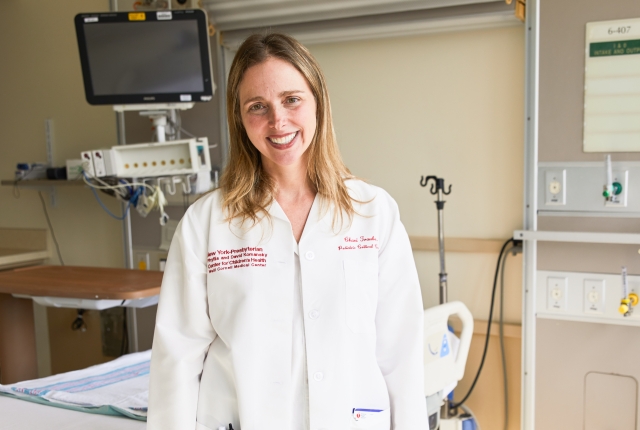
Delirium is a frequent occurrence among children hospitalized with cancer, affecting nearly one in five patients, according to new research from Weill Cornell Medicine and NewYork-Presbyterian.
The study, published Nov. 21 in the Journal of Pediatrics, revealed that children who were either younger than 5 years old, had an underlying brain tumor, were recovering from surgery or receiving benzodiazepines — a class of drugs that treat anxiety, nervousness, seizures and other conditions by altering chemical signals in the brain — were at greatest risk for delirium, a mental state characterized by changes in alertness, cognition or awareness. The investigators say their findings demonstrate that children with cancer are at risk for developing delirium, and underscore the importance of routine screenings for the condition, which is associated with poor health outcomes, prolonged hospital stays and increased distress for patients and their families.

